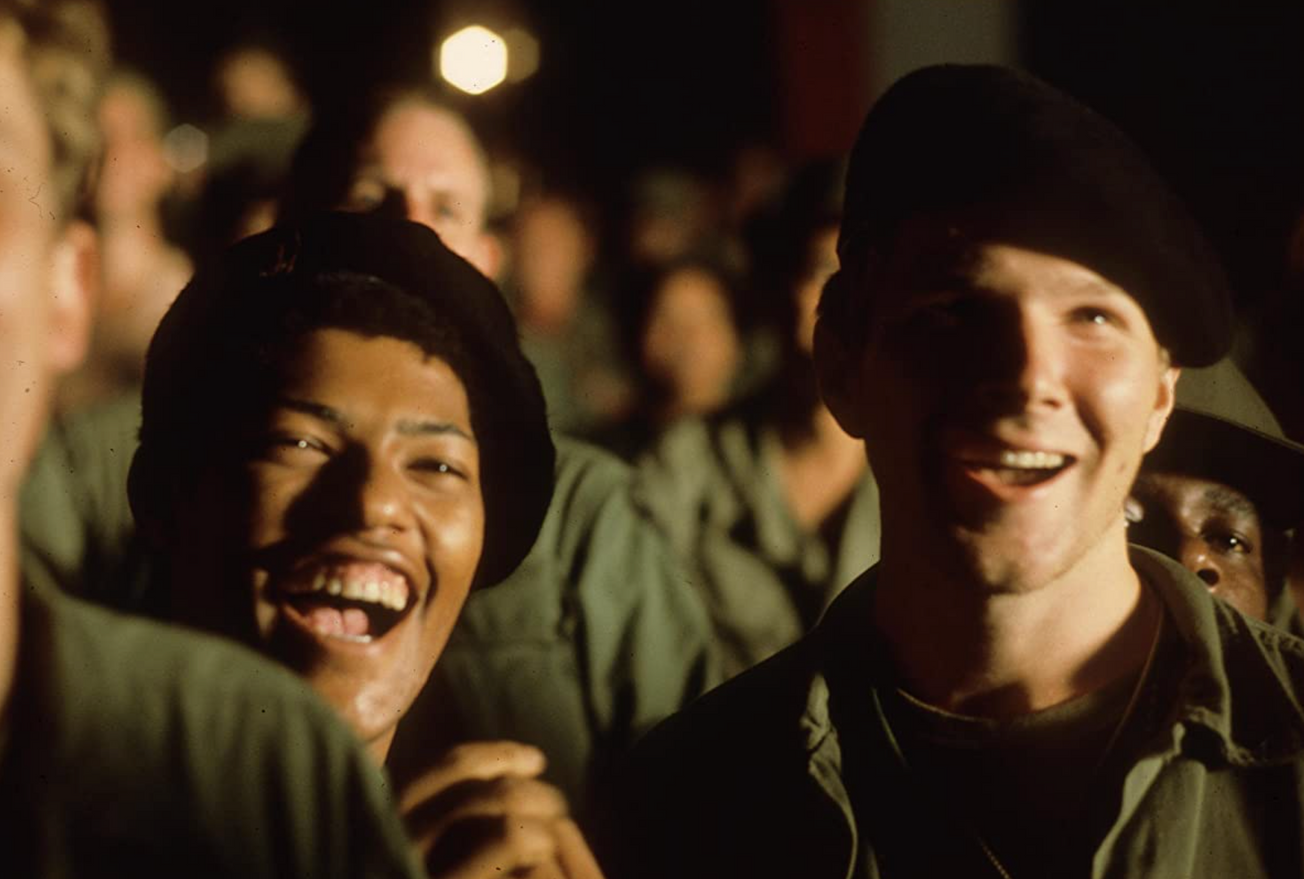By Harry Stringer, Third Year, Classics
The narrative surrounding military remembrance has often walked the line between sombre commemoration and pro-war propaganda; and nowhere does this oxymoron manifest more than in film.
Since its inception in 1919, Remembrance Day has been characterised by its sombre tone and a firm declaration that the violence and loss of life seen in the First World War (1914-1918) and later in the Second (1939-1945) must never happen again. However, this solemn attitude, borderline condemnatory of war, has often been at odds with another notion: the patriotic military hero worship that pervades our culture.
Representation of war in film undoubtedly has its roots in propaganda, as is seen in Tearing Down the Spanish Flag (1889), a silent film made a year after the invention of the medium. Created during the year of the Spanish-American War, it solely depicts the lowering of the contemporary Spanish flag before its subsequent replacement with the Stars and Stripes.
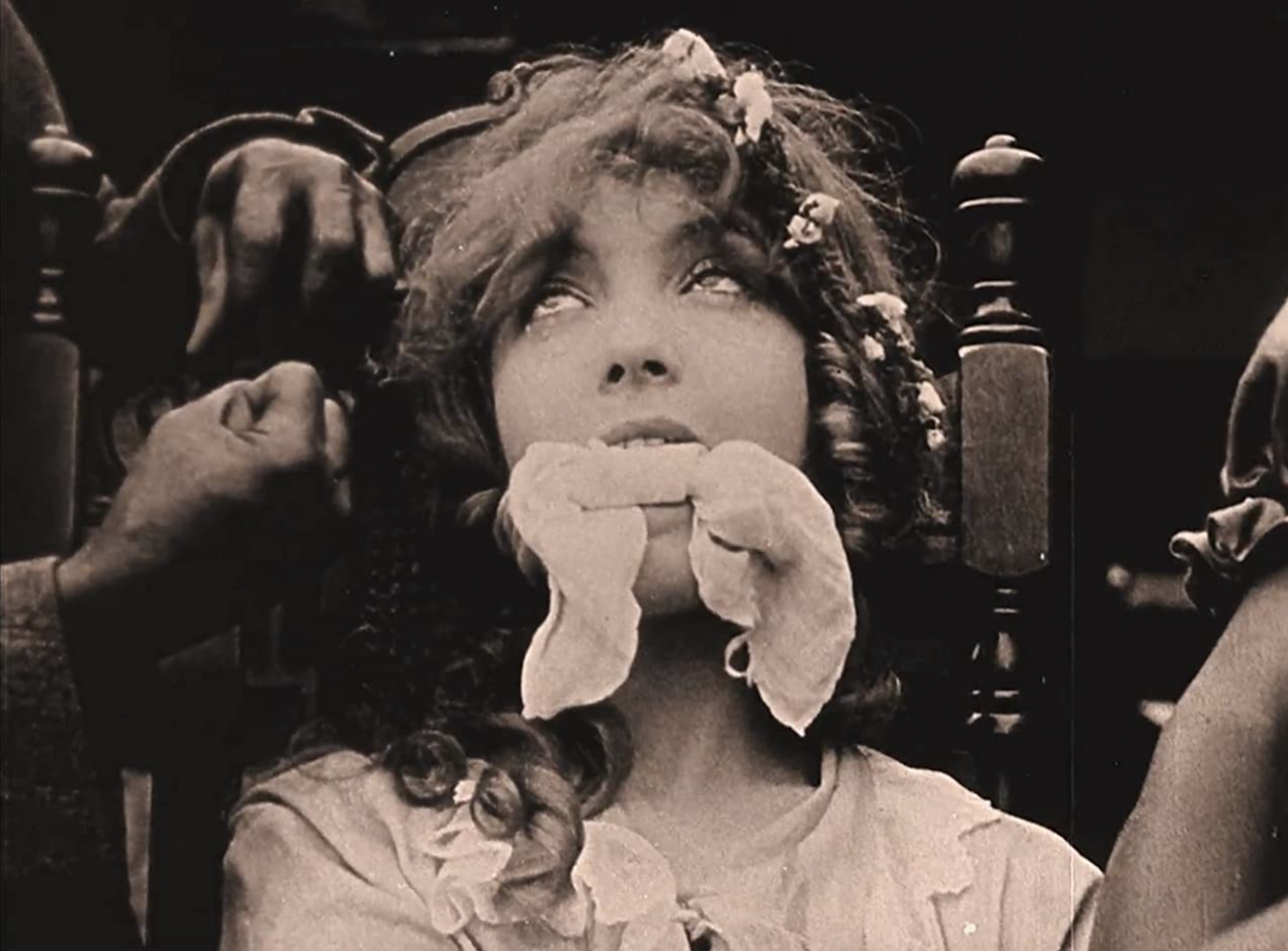
But for better or for worse, military propaganda in film has come a long way. Only 26 years later The Birth of a Nation (1915) would be released. The longest film ever made at the time, it depicted a relatively complex account of a Northern and Southern family through the American Civil War, in which the Ku Klux Klan are presented as national heroes and African Americans (primarily played by white actors in blackface) as unintelligent and lecherous criminals. Though a virulently racist work of revisionist history, The Birth of a Nation was revolutionary both in terms of plot and cinematography and was disturbingly the first motion picture to ever be screened at the White House.
In a similar vein, many of the films made during and briefly after both World Wars were intended to boost morale and affirm the moral superiority of whichever country made them. Meanwhile, the most prominent anti-war films in this period, such as All Quiet on the Western Front (1930), tend to occur at least a decade after the war in question, with the objectivity of hindsight and without the necessity of wartime morale. It is common to look upon the early wars of the 20th century as morally black-and-white situations while it’s later ones are ‘greyer’ conflicts, considered to have been fought less out of moral necessity than personal gain.
Many of the films made during and briefly after both World Wars were intended to boost morale and affirm the moral superiority of whichever country made them
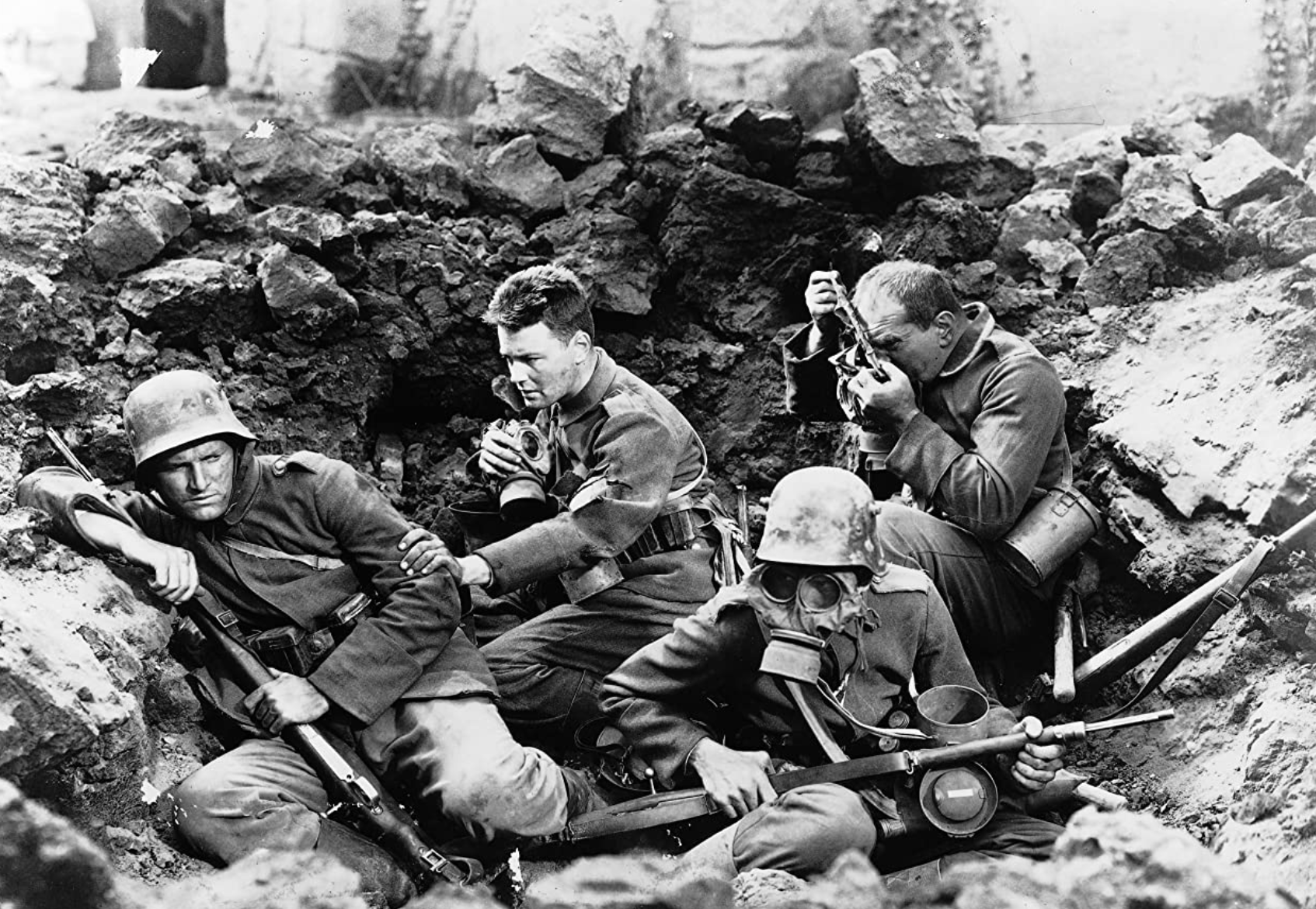
Despite this, the pattern of whether the films lean more towards solemn regret or morale-boosting propaganda are similar in both cases. For example, films on the subject of the Vietnam War (1955-1975) released earlier in the conflict tended to demonise the enemy and glorify the American soldier, according to the work of Martin Novelli. However, films released during and after the 1970s, after the continuing war became increasingly unpopular with the American people, lean towards the ‘war is hell’ narrative so strongly associated with the Vietnam War, with classics like Apocalypse Now (1979) and Full Metal Jacket (1984) depicting the dehumanising effect war had on its soldiers.
Despite its different origins to these films, in place and time, Remembrance Day invokes a similar idea with William Owens’ oft-recited poetry decrying “the old lie: dulce et decorum est”. In this, it is recognised that while the two World Wars were neither sweet nor honourable, they were necessary. But this is where the angsty war films of the late 20th century differ: war is portrayed not only as bitter and dishonourable but also as pointless.
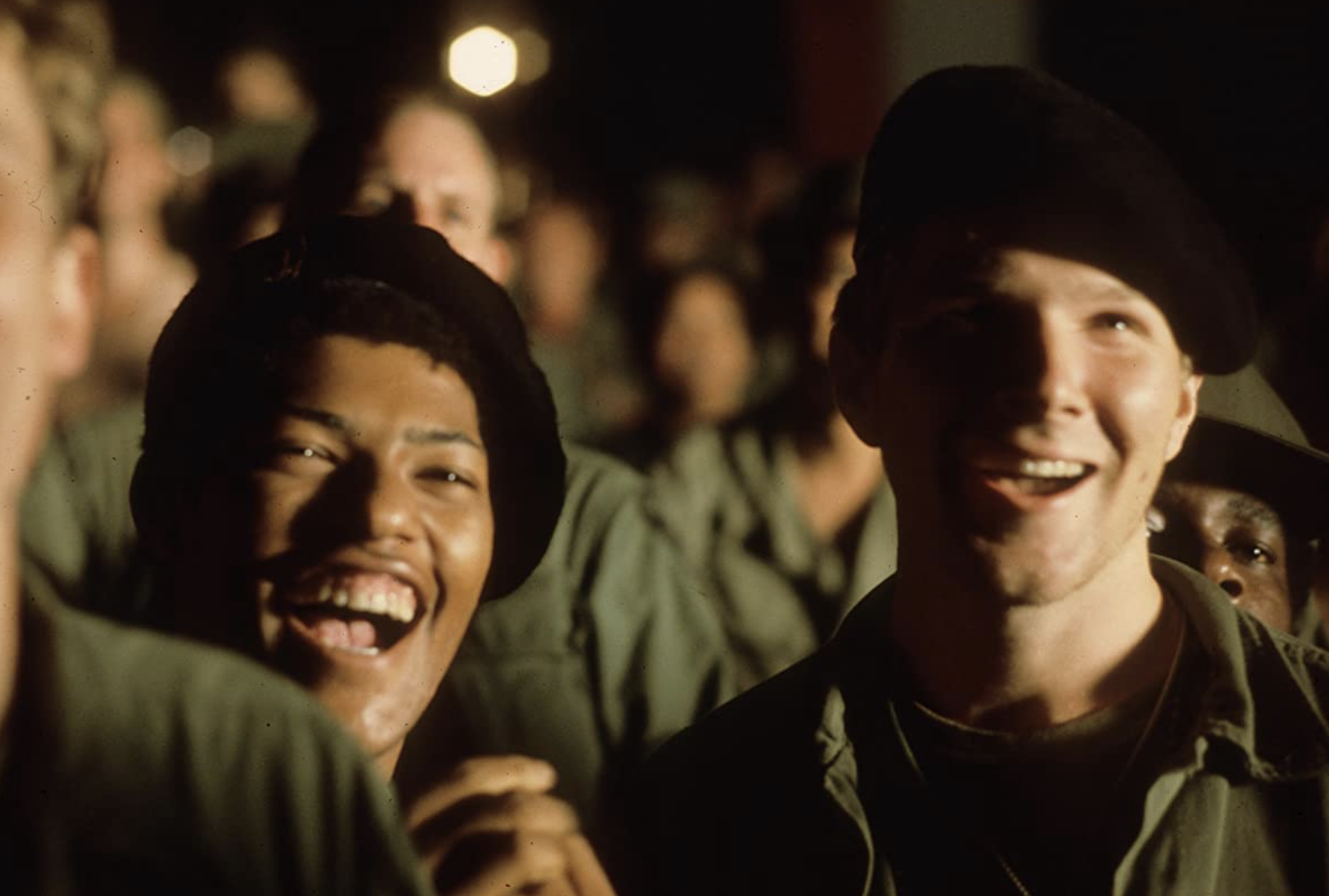
So, where does this leave the modern war film genre? Last year’s release 1917 (2019) shows a pair of young soldiers’ harrowing journey across the WWI battlefield, and thus fits comfortably in the ‘war is hell’ category. The use of several continuous shots, giving the illusion of one long shot, immerses the audience in the unending fatigue of the battlefield. After all, there are no jump cuts or intermissions in war. However, there are moments throughout the film, such as the betrayal of the plucky British soldiers by a downed German pilot whom they help, which are reminiscent of the black-and-white portrayals of differing nationalities in contemporary WWI media.
Meanwhile, American Sniper (2014), released only 3 years after the end of its respective conflict, the Iraq War, does not shy away from the horrors of military service, portraying the violence imposed by both sides upon non-combatants and children. However, it also makes very little effort to disprove the main character Chris Kyle’s (Bradley Cooper) several references to his Iraqi opponents as ‘savages’, a view held by the real-life sniper upon whom the film is based. It is no doubt a good thing that the soldier’s prejudices are shown, rather than erased. But, in refraining from portraying the religious and political nuances that existed among Iraq’s civilians and combatants, they are subtly endorsed and the invasion is retroactively justified in the minds of its largely American audience.
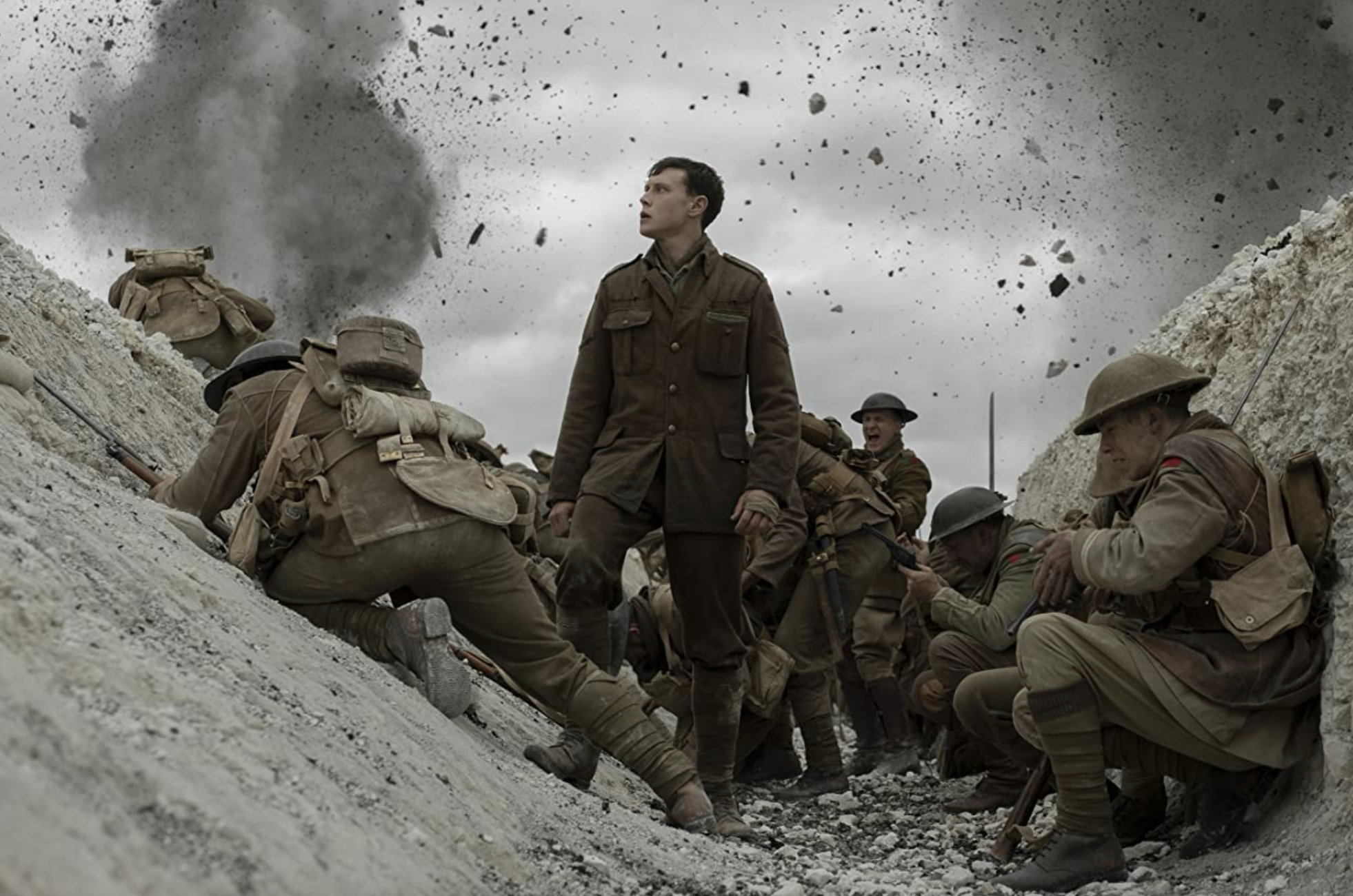
Military remembrance is evidently a multi-faceted issue, balancing the evil of war with its sometime necessity and the glory of battle with its supposed futility. At one point or another, the genre of war film has touched upon all these facets and it is in modern war film that they are synthesised into one concept.
Perhaps this provides a more realistic view of war rather than adhering to a sole narrative but in portraying the true horrors of war through the lens of black-and-white, patriotic morality, as films like American Sniper do, there is a risk of deadening their impact and making them forever justifiable.
Featured: IMDb
What are your favourite films that depict war?

